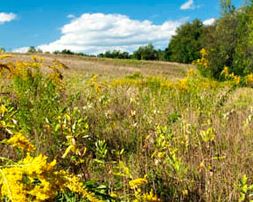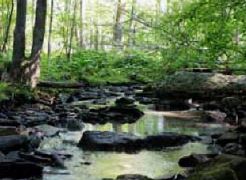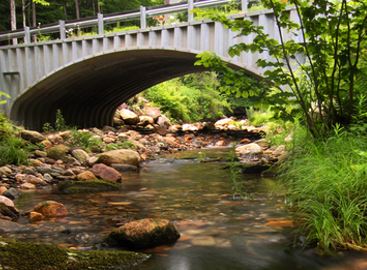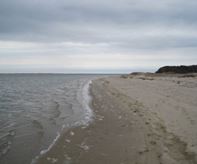|
In This Issue:
New Project Coordinator
Cost Effective Low Impact Development
Stream Continuity Survey
Climate Adaptation Bill & Community Resilience
Shaping the Future Team
Stefanie Covino, Project Coordinator
Christina McDermott, Project Assistant
Heidi Ricci, Senior Policy Analyst
Help Us Protect the Nature of Massachusetts
You can help! Your tax-deductible contribution helps Mass Audubon provide assistance to communities working toward a more sustainable future.


Contact Us
Do you have questions about the Shaping Program or want to host a workshop in your community?
Please contact Stefanie Covino at scovino@massaudubon.org or call 508-753-6087 x5018.
Resources
• Losing Ground: Planning for Resilience
• Shaping the Future of Your Community Guidebook to Citizen Involvement
• Sustainable Community Planning Toolkit
• Ecological Extension Service
Join Mass Audubon
Membership dues provide vital support for Mass Audubon's advocacy work to make programs like Shaping the Future of Your Community possible.

This News and Updates e-Bulletin is sent bimonthly (six times / year), keeping you up-to-date when there are new resources, events, tools or programs that can help you shape the future of your community.
|
The Shaping the Future of Your Community Outreach & Assistance Program is working in the state’s fastest developing regions to provide community leaders and concerned citizens with tools and support to chart a more sustainable future for our Commonwealth.
Shaping Program Welcomes New Project Coordinator
 Mass Audubon’s Shaping the Future of Your Community program is excited to welcome the new Project Coordinator, Stefanie Covino. Mass Audubon’s Shaping the Future of Your Community program is excited to welcome the new Project Coordinator, Stefanie Covino.
Stefanie recently completed her Masters of Environmental Science and Policy at Clark University and has experience in outreach and public engagement with several groups including the Greater Worcester Land Trust and the New England Water Innovation Network.
The award-winning Shaping program assists communities with open space protection and low-impact, sustainable development, with a focus on the Sprawl Frontier along the Route 495 corridor. Stefanie is located at Broad Meadow Brook Conservation Center and Wildlife Sanctuary and can be reached at scovino@massaudubon.org or 508-753-6087 x5018.
Cost Effective Low Impact Development
 When it rains, most of us reach for an umbrella or run to close our windows, but we may not think about where all that water is heading. For communities facing flooding and the high costs of water quality regulations, it is increasingly important, especially as forests and farmlands are converted to pavement. When it rains, most of us reach for an umbrella or run to close our windows, but we may not think about where all that water is heading. For communities facing flooding and the high costs of water quality regulations, it is increasingly important, especially as forests and farmlands are converted to pavement.
One area that is heavily impacted by stormwater pollution is the ecologically important Blackstone River watershed, which spans 545 square miles from Worcester to Narragansett Bay. Mass Audubon, the Central Massachusetts Regional Planning Commission, Horsley Witten Group, Inc, and the Blackstone River Coalition are teaming up to assist communities in the Blackstone watershed with practical methods to use Low Impact Development (LID) and Green Infrastructure to:
- Minimize costs of development and local infrastructure maintenance (e.g. roads and stormwater)
- Reduce flooding
- Improve water quality
- Protect and restore natural features that improve quality of life and property values
The team is developing case studies that illustrate success in reducing nutrient loads while making economic progress. For more information on this project, including workshop presentations, please see www.massaudubon.org/LIDcost. Stay tuned for more workshops this fall!
This project was funded by an agreement (CE96184201) awarded by the Environmental Protection Agency to the New England Interstate Water Pollution Control Commission on behalf of the Narragansett Bay Estuary Program.
Stream Continuity Survey
 Are you a municipal leader or DPW manager? Then please help by taking a quick surveyto help us learn more about stream continuity. Are you a municipal leader or DPW manager? Then please help by taking a quick surveyto help us learn more about stream continuity.
The MA Division of Ecological Restoration (DER) is developing a state-wide program to help cities and towns replace failing or undersized culverts with structures that incorporate the new Massachusetts Stream Crossing Standards. Research has shown that culverts meeting the stream crossing standards hold up better during floods, are more cost-effective for municipalities in the long term, and restore river health. Local leaders’ responses to this survey will help shape this program and the type of assistance and materials the state will offer.
Your time and input are greatly appreciated. The survey should only take 5-10 minutes to complete. Question or comments? Contact Timothy Chorey at DER: timothy.chorey@state.ma.us or (617) 626-1541.
Climate Adaptation Bill and Community Resilience
 |
| © USFWS |
Good news! Mass Audubon’s priority bill on climate adaptation is progressing through the Senate, with hopes of moving on to the House this summer. The bill, “An Act providing for the establishment of a comprehensive adaptation management plan in response to climate change” or “CAMP” (S.451/H.752), would help prepare Massachusetts for the impacts of climate change by identifying where we are most vulnerable and taking measures to protect public health, public safety, and the economy.
The Shaping program is also working to help communities plan for resilience by protecting the natural landscape’s capacity to absorb increasingly intense storms and supporting low impact development (LID). From reduced flooding to rain barrels, LID views water and stormwater as a resource. To learn more how LID can be a climate adaptation tool, check out this resource from the UNH Stormwater Center.
You can help support this important bill on climate change adaptation by contacting your Senator and asking them to encourage the Committee on Ways and Means to report the bill out favorably. For information on the bill, see our summary.
|
